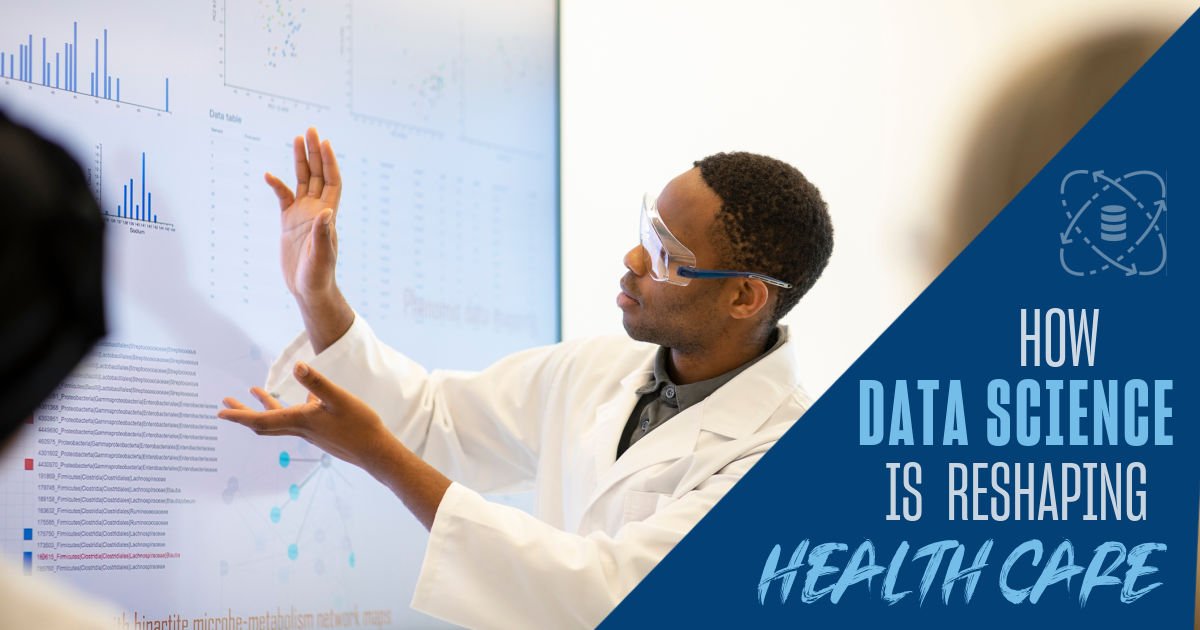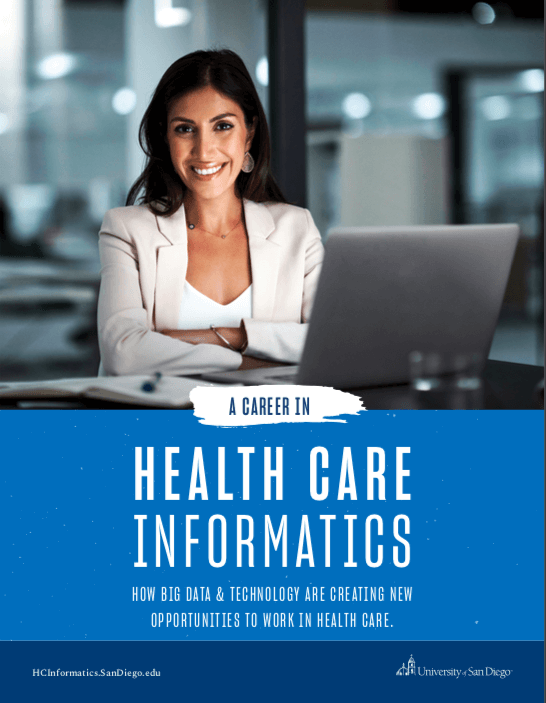The data revolution is not just revolutionizing banking, retail and technology companies. The health care field is also on the front lines of using data science to spark new innovation, optimize process efficiencies, customize precision medicine solutions and improve patient outcomes. Beyond just creating efficiencies, the health care industry is leveraging data science to improve the health of humankind.
Here are just a few of the many ways data science is reshaping the health care field, and what that means for those who work in this essential industry.
How is Data Science Used in Health Care?
Health care has a long tradition of utilizing research and in-depth data analysis to generate new insights into disease progression, drug development and more. With advanced data science technologies, though, all of these processes can be done faster, more accurately, and on a larger scale. Modern health care has shifted its focus to leveraging massive amounts of available data to improve patient outcomes and quality of care. Health care data science efforts are also prioritizing patient care initiatives.
Using emerging tools and technologies such as artificial intelligence, machine learning and predictive analytics, data scientists are now able to harness the insights and power of existing and future health care data. What’s more, much of this research and subsequent discoveries can be done at a fraction of the time and cost.
Beyond patient care, data science is being utilized in efforts surrounding:
- Population health
- Disease spread tracking/prevention, such as COVID-19
- Social determinants of health
Benefits of Data Science in Health Care
The benefits of data science include its capacity to give health professionals a glimpse into the future and the high-tech tools it offers to respond to those insights. Researchers and health care organizations are using data science tools, like AI and predictive analytics, to prepare for future health care demands and trends that will need to be addressed.
For example, research funded by the National Institute on Minority Health and Health Disparities showed that a simple risk prediction model helped forecast stroke risk in adult patients who suffer from migraines. With further research, this model could help providers identify patients at high risk and intervene before the stroke occurs.
A second example of health care data science helping to forecast potential health issues was revealed in a Lancet Public Health study. This study used big data modeling that projected a significant rise in deaths from alcohol-related liver disease in the U.S. if no changes in alcohol consumption are made or no public health officials intervene to address high-risk drinking. Using these findings, health care officials can proactively advise patients to monitor alcohol intake or lobby lawmakers to act to curb Americans’ increased alcohol consumption.
Data science is being further utilized in numerous health care functions, from research down to in-office medical practices. Here are some examples of real-life data science applications in the health care field:
- Medical Imaging: The United States Department of Defense’s Defense Innovation Unit launched a new initiative aimed at utilizing AI to detect early signs of cancer in medical images. The DOD Predictive Health project will leverage AI technology to scan hundreds of thousands of CT scans, MRIs, X-rays and slide imagery made from biopsies to gain new insights regarding diagnosis and early indicators of illness.
- Genomics: Using data science technology to analyze electronic health record data, scientists were able to successfully identify gene-specific signatures of epilepsy in children. By finding these markers, it is hoped that doctors will be able to develop better treatments and utilize improved clinical support tools.
- Early Diagnosis: A recent study showed that artificial intelligence and health care data science deep learning models were able to detect COVID-19 in chest scans and could even differentiate COVID-19 from other pneumonias unrelated to the virus. Doctors have not been able to accurately use chest scans to diagnose COVID, but this new development could help speed up diagnosis in patients, which could ultimately improve outcomes.
- Disease Prevention: A study published in Cancer Epidemiology, Biomarkers & Prevention showed that a “predictive analytics model was able to accurately identify patients at higher than normal risk for pancreatic cancer,” which is the third leading cause of cancer death in the U.S. By identifying the high-risk population, doctors will be able to improve prevention efforts and early screenings.
- Improving Outcomes: In the wake of COVID-19, doctors and researchers have utilized health care data science technologies to speed up the discovery of treatments in an effort to improve patient outcomes. Organizations are leveraging EHR data, patient registries, and mobile device information to better understand trends and outcomes, leading to improved care delivery across the country in response to this pandemic.
Data Science in Health Care
Job growth in the field of data science is expected to increase rapidly by 2026, with an estimated 11.5 million jobs added in just the next six years, according to the U.S. Bureau of Labor Statistics. What makes moving into this career even more appealing is that there is a dramatic negative unemployment rate — that is to say, there are far more jobs than there are qualified applicants. The LinkedIn Emerging Jobs Report states that there are only 35,000 candidates with the right mix of skills and experience to fill these roles.
In health care specifically, there is the potential for an even larger gap between the volume of job openings and the number of applicants to fill those needs. A HIMSS survey showed that only 38% of health care organizations are fully staffed in their health IT departments, which encompasses data science, analysis and data management.
Required Skills for the Health Care Data Science Field
Aspiring health care data science professionals need to be skilled in these primary functions:
- Data analytics: Familiarity with how the vast volumes of electronic data now available from a multitude of sources can be analyzed to develop strategies that impact the quality, efficiency and cost of care.
- Knowledge of health data systems: Will work closely with the health data systems used in the workplace and be ready to learn new systems as technology continues to evolve.
- Programming knowledge: Computer programming is not necessarily a requirement for every data scientist, but familiarity with tools such as Java, Python, Apache and SQL will provide a competitive edge. Data analysts should focus on tools that help them with data mining, data warehousing and data modeling, such as SQL, SAS and R.
- Health care industry knowledge: Thorough understanding of the operations and workflows of clinical care provider organizations, including health systems leadership, delivery of care, outcomes, strategic planning and management, and more.
- Problem-solving skills: Ability to solve problems with data, what data to look at, how to look at it, how to extract meaning, make projections, etc.
- Communication skills: In addition to basic communication skills, health data science roles often require the ability to communicate complex information clearly and accurately. Strong listening skills are also essential.
- Interpersonal skills: Including teamwork and team building, conflict resolution and empathy.
In addition to these skills, it is recommended that those interested in this field earn professional certifications, such as the Certified Health Data Analyst (CHDA) from the America Health Information Management Association (AHIMA).
Regardless of what medical breakthroughs or improved treatments are derived from health care data science practices, what is certain is that there will be an increased demand for skilled professionals in this field. In a Health Catalyst survey, 25% of hospitals reported that well-qualified data scientists were “impossible to find.”
This is why obtaining specialized training, such as a master’s degree in Health Care Informatics is a good starting point for anyone interested in entering this innovative and exciting field. Interested professionals should seek out programs with specialized Health Care Analytics/Data Science coursework, including machine learning and AI, so they can develop the unique skills required for current and future health care data scientists.


